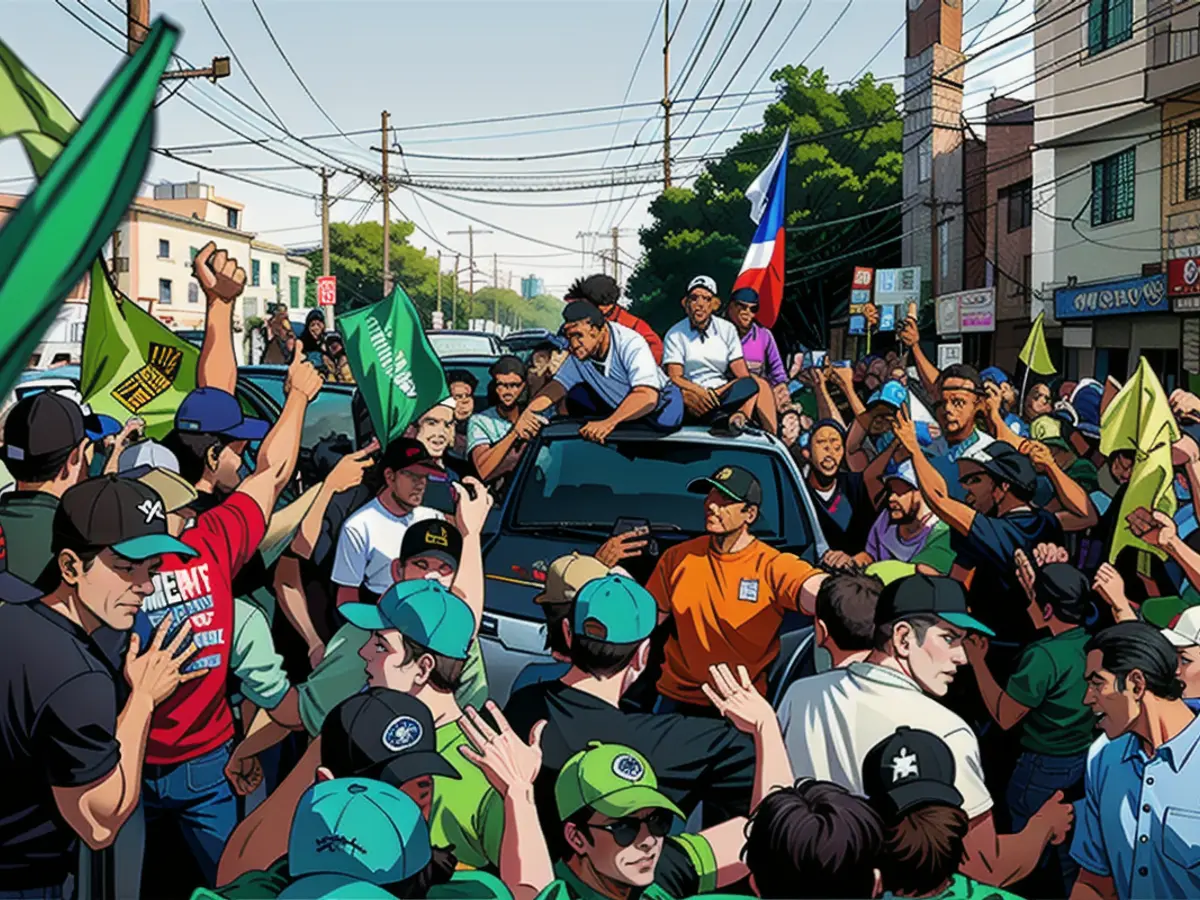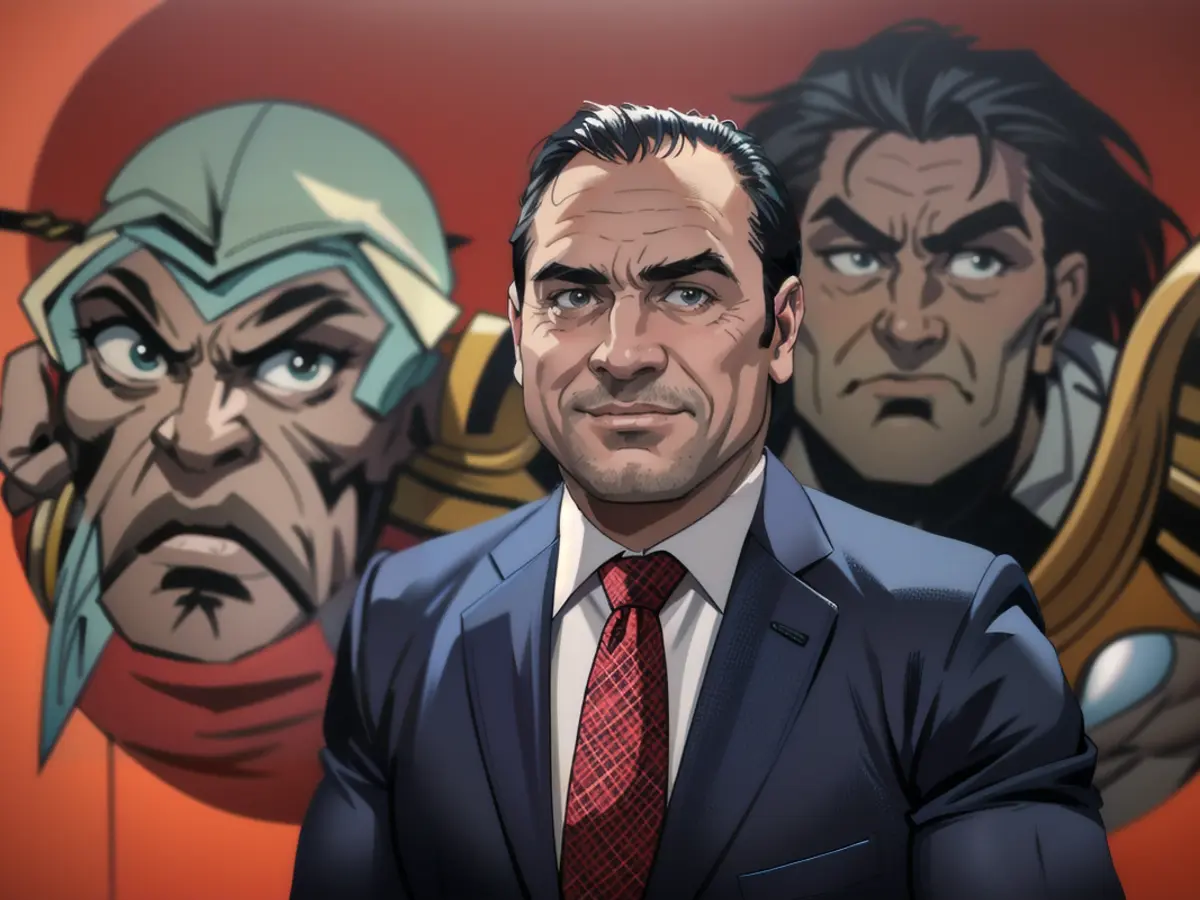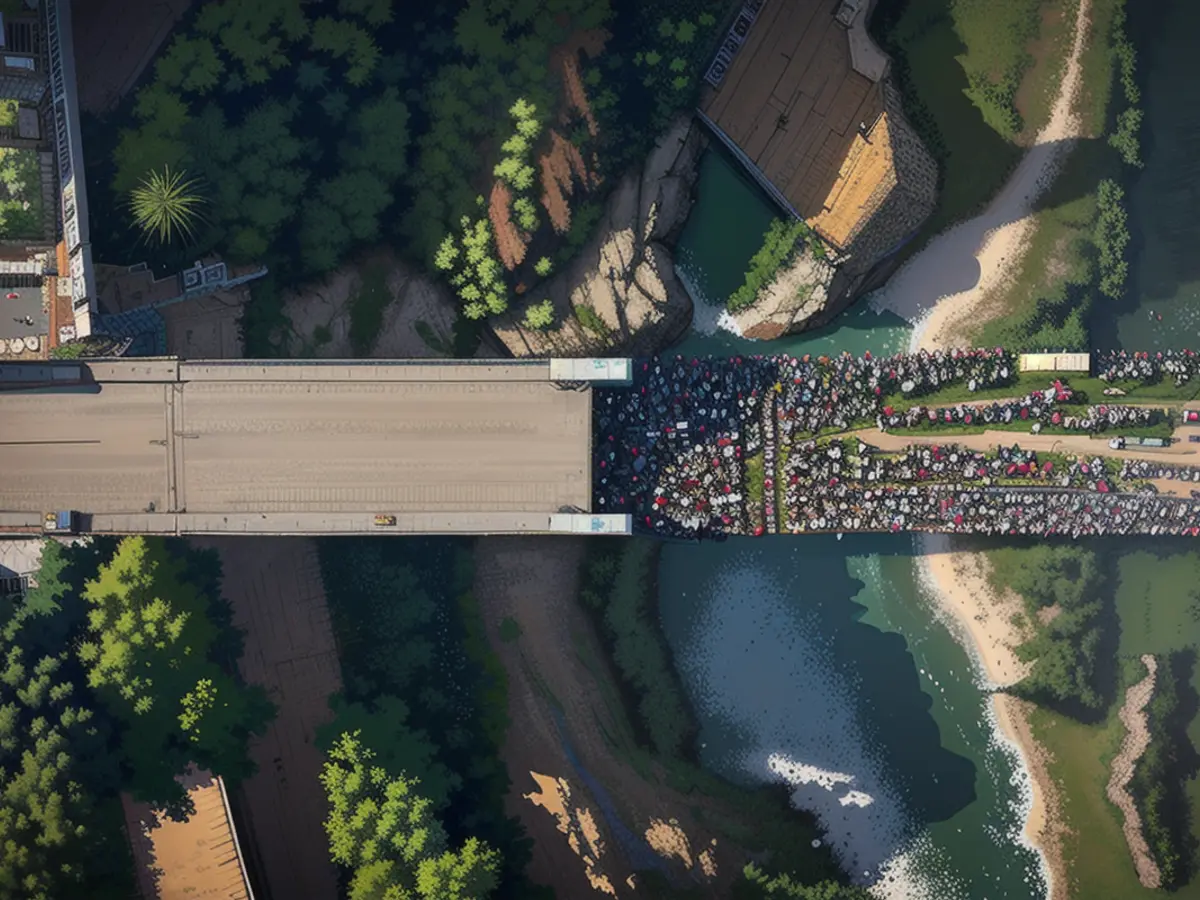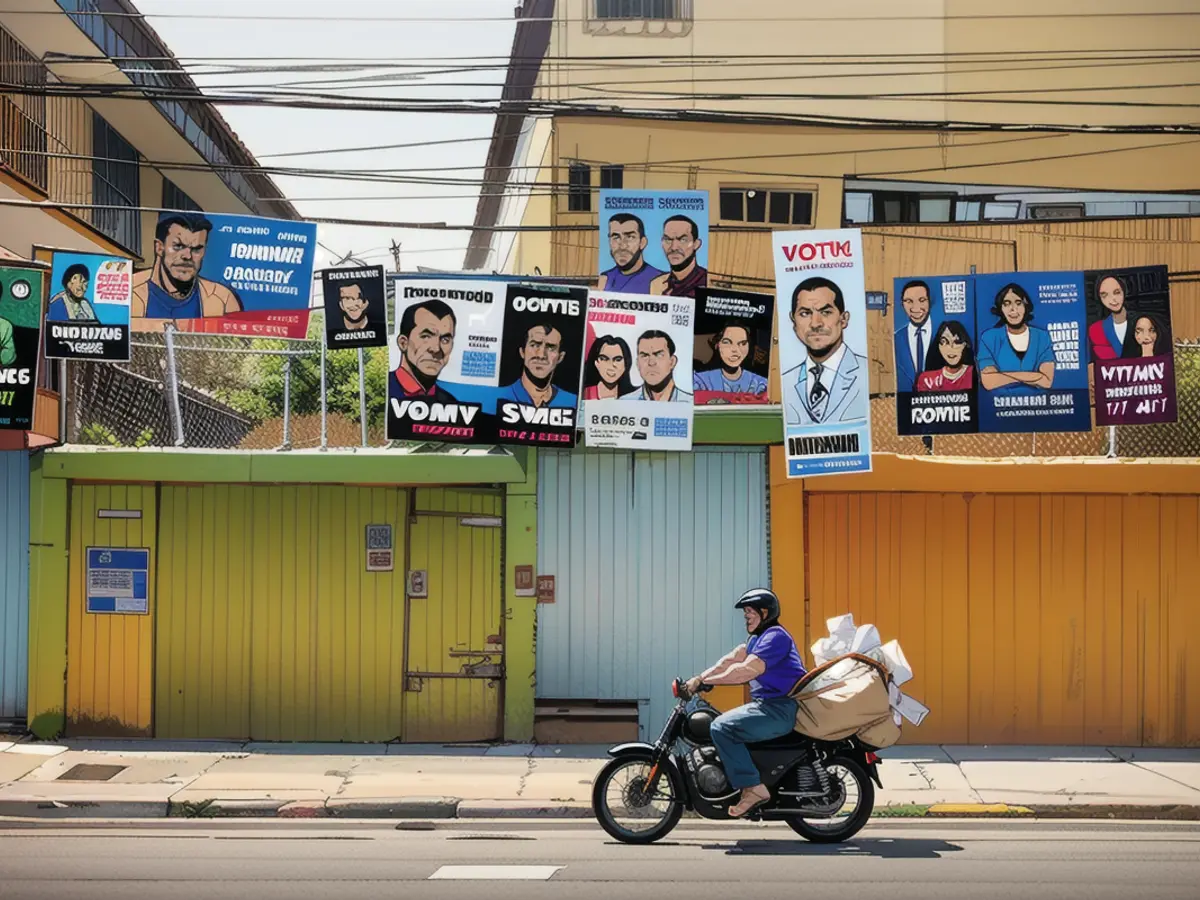This Sunday, Dominicans head to the polls. Here's what you need to be aware of.
In the upcoming May 19 election for the highest office in the Caribbean nation, three men seek the presidency, including the current president, a former president, and a mayor. If no candidate gets more than 50% of the vote, a second round will take place on June 30. Here's a look at the candidates and their key issues:
President Luis Abinader: "The Change Continues"
The Dominican Republic's current president, Luis Abinader, aims for a second term, keeping him in office until 2028. Abinader, a 56-year-old economist and businessman, became president in 2020 during the Covid-19 pandemic, following in the footsteps of his father, a three-time presidential candidate.
Leading the Modern Revolutionary Party (PRM) with the slogan "The Change Continues," Abinader seeks four more years of economic growth and stability. During his first term, the Dominican Republic set a record in the tourism industry, attracting over 10 million tourists by 2023.
Experts forecast Abinader to prioritize development, reform, and anti-corruption efforts if re-elected. He has pledged reforms for the National Police, health sector, and education.
Despite progress in the energy sector, the World Bank emphasizes the need for more transparency, accountability, and efficiency in this area. Abinader has a proficient economic team but faces criticisms regarding rising losses in the electric distribution system and an increase in external debt.
His management of the Haitian crisis has received mixed reviews. For voters near the border, his handling of Haitian deportations and border closures will be critical. Abinader's term saw significant anti-corruption efforts, along with his handling of the pandemic, widely viewed as successes.
Some critics claim these anti-corruption efforts disproportionately targeted members of the Dominican Liberation Party, previously in power.
Former President Leonel Fernandez: Fourth-Time Candidate

Voters will see a familiar face in Leonel Fernandez, the 70-year-old former president who already held the position three times, from 1996 to 2000, from 2004 to 2008, and from 2008 to 2012.
Fernandez is known for modernizing the Dominican Republic's state institutions and justice system, including the constitutional reform that led to the 2010 Constitution. During his first term, he privatized the energy distribution sector, selling shares of electricity companies previously owned by the government.
Fernandez is credited with building national infrastructure, like the subway system that transformed Santo Domingo's capital city. This has had a considerable impact on tourism in the eastern region, experts say.
However, his time as head of state was marred by widespread government corruption, Vega notes. Today, Fernandez leads the Force of the People party, founded after losing the Dominican Liberation Party's primary elections.
Fernandez's platform centers on addressing the country's inequality, vowing to implement wealth redistribution and social justice measures. He supports a new United Nations peacekeeping mission in Haiti and pledges to tackle poverty, create better housing, improve education, and promote comprehensive health care.
Abel Martinez: Prosecutor to Prospective President
Abel Martinez, a 51-year-old Dominican politician, educator, and lawyer, has had a diverse career in public service. He previously worked as a deputy prosecutor in Santo Domingo and as a prosecutor in Santiago.
From 2002 to 2016, Martinez served as a deputy in the Dominican National Congress, completing three terms and presiding over the Chamber of Deputies for six years.

Martinez's primary focus is on advancing technology in various sectors, strengthening the prison system, and enhancing surveillance at the border with Haiti.
He advocates for ending hunger and poverty, improving education for students and teachers, and combating crime and securing citizen safety.
Additionally, the youngest candidate is committed to combating illegal immigration, particularly Haitian immigrants.
Crime, safety, and inflation top voters' concerns.
- Discuss the different candidates' stance on crime and safety and how it could impact their election chances
- Explore the views of economists and political analysts on the current state of the Dominican economy and its potential to affect voter decisions
- Delve into the social considerations relevant to these elections, such as poverty, education, and health
Safety and criminal activity are significant worries for Dominican citizens during this election season, as demonstrated by various surveys. Government statistics show a decline in crime in the initial three months of the present year when contrasted to the same period in 2023, with the murder rate decreasing by 30.2%.
Since June 2023, the US State Department has continued to recommend that travelers to the Dominican Republic exercise enhanced caution because of rising criminal activity.
Pablo Flores, a Santo Domingo citizen who owns a mini-market, recalls how rampant crime once led him to temporarily shut it down for a period. Currently, for fear of being robbed, he has implemented his own safety measures: a boundary fence safeguards the entirety of his small business.

"If I don't take care of myself, who will?" Flores inquires. "Crime needs to decrease as it's quite high."
Close behind street crime is the Dominican Republic's economic disorders.
Over the last two decades, the Dominican Republic has been among the Caribbean's quickest-growing economies, as reported by the World Bank. Nevertheless, it seems that the stimulators of this exceptional development are nearing their limit due to meager productivity expansion in recent years, an insufficient workforce to serve the business sector, weather-related catastrophes, and market disruptions, such as the inefficient usage of tax exemptions.
The Dominican Republic's economy increased by 4.9% last year, but high inflation rates in 2022 (8.8%) and 2023 (4.8%) have taken their toll on the standard of living for the general population.
Yoely Escarlante, a mechanic, finds it challenging to provide for his four children and keeps his workshop in Santo Domingo open despite adverse weather conditions. On certain days, he can make up to $100 (5,000-6,000 Dominican pesos). On other days, however, he earns no income at all.
Ney Segura, a public transportation driver, also voices concern about the state of the economy. "The money doesn't seem enough," he contends. According to him, "the poor are more impoverished."
The World Bank asserts that more than 40% of Dominicans are economically vulnerable and face the possibility of falling into poverty due to the effects of climate change and economic crises. Furthermore, gender inequality in the job market and gaps in pay, shorter work lives, and increased unemployment and unpaid roles lead to higher poverty levels among women in particular.

Read also:
- This will change in December
- Dikes withstand water masses so far - Scholz holds out the prospect of help
- Fireworks and parties ring in 2024 - turn of the year overshadowed by conflicts
- Attacks on ships in the Red Sea: shipping companies avoid important trade route
In the context of the political landscape of the Americas, the Dominican Republic's election on May 19 holds significant weight as the results could potentially influence the political direction of the region. Furthermore, the World Bank has emphasized the importance of addressing transparency, accountability, and efficiency in the Dominican Republic's energy sector, which is a global issue affecting numerous countries in the world.
Source: edition.cnn.com







